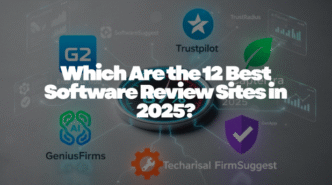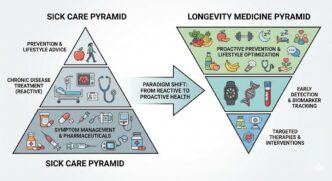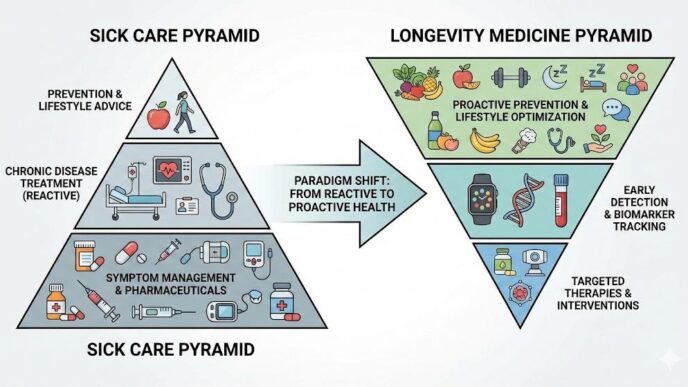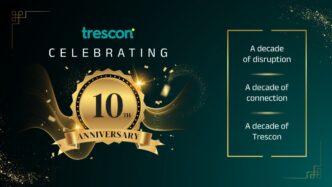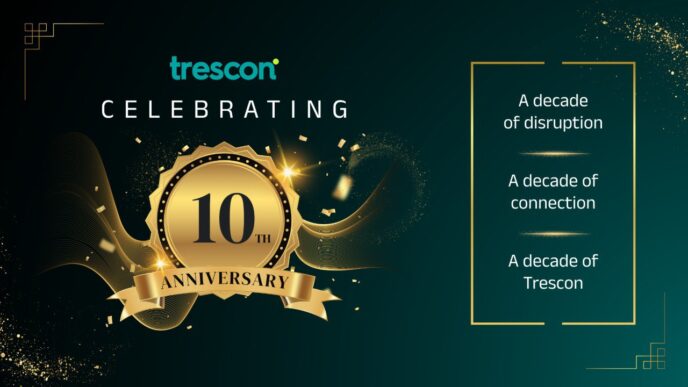Trust defines every software purchase. With countless directories claiming to host the most reliable reviews, the real question isn’t who’s loudest—it’s who’s genuinely useful. Businesses now look for review platforms that combine verified data, meaningful insights, and transparent scoring, not just star ratings or sponsored listings.
This analysis examines twelve of the most credible software review sites, assessing them across key factors such as data transparency, verification strength, usability, and analytical depth. From G2’s enterprise coverage to the rise of specialized AI-driven and industry-specific platforms, we break down how each one shapes modern B2B buying decisions—and which truly earn the trust they claim.
What Defines the Best Software Review Site in 2025?
In 2025, what sets a software review platform apart is data depth, verification authenticity, and usability. Businesses no longer want 3-star ratings with one-line opinions. They expect quantified, structured, and fraud-free reviews that guide real purchase decisions.
Our evaluation used 10 non-generic metrics, including review verification, user base quality, vendor transparency, and niche specialization. This approach highlights platforms that deliver decision-making value instead of promotional noise.
1. G2 — Still the B2B Benchmark
G2 remains the benchmark for B2B SaaS reviews, with over 160,000 authenticated reviews and advanced anti-fraud algorithms. Its real edge is the combination of peer insights and analyst perspectives, which make it invaluable for enterprise buyers.
It’s not free of drawbacks — vendor quote-based pricing can limit exposure for smaller players — but G2’s depth, category range, and transparency earn it the top slot again in 2025.
2. Trustpilot — Massive Scale, Shallow Insights
Trustpilot commands over 80 million reviews, mostly consumer-driven. It’s excellent for capturing customer sentiment at scale, but the depth of data is limited compared to business-focused platforms.
For software discovery, it’s supplementary at best — better used for brand credibility tracking than detailed product evaluation.
3. SoftwareSuggest — Expert-Assisted Guidance for SMEs
SoftwareSuggest merges expert consultation with user feedback, creating hybrid reviews that combine quantitative and qualitative insight.
It’s particularly effective for SMEs exploring local tech solutions, offering concise yet relevant assessments. Its limitation lies in its affiliate-linked monetization, which may slightly tilt recommendations, but the overall guidance quality remains strong.
4. Capterra — Accessible, but Pay-to-Play
With more than 2.5 million reviews, Capterra dominates in reach, especially among small to medium-sized firms. The interface is clean, the breadth is impressive, but vendor ranking bias due to its pay-per-click model raises questions about neutrality.
Its value lies in simplicity — ideal for quick shortlisting — but it’s not where you’d go for in-depth product analysis.
5. Techraisal.com — The Niche Innovator for Industry-Specific Software
Techraisal fills a gap many overlook: niche software discovery. Its platform focuses on specialized industries like auto repair shop management, offering digital inspections, job boards, and field service integrations.
While its mobile interface has usability issues and vendor reporting depth is still evolving, Techraisal earns points for authentic community-driven insights and a focused, functional UI.
6. TrustRadius — The Enterprise Review Standard
TrustRadius excels where brevity fails. With average reviews exceeding 400 words, it caters to mid-to-large enterprises that need depth, not volume. The platform offers Review-as-a-Service (RaaS) options, enabling verified feedback collection at scale.
Its tiered pricing model is less appealing for startups, but TrustRadius remains one of the most credible enterprise-facing platforms.
7. FirmSuggest.com — The Transparent Business Services Directory
Unlike most software directories, FirmSuggest targets business service reviews, not just software tools. Users can rate firms on timeliness, quality, and customer support, creating a multi-dimensional scoring system.
FirmSuggest doesn’t allow paid promotions — an underrated advantage that keeps its reviews genuinely unbiased. Though its anti-fraud checks are basic, its free-access model and coverage in India make it a strong resource for cross-industry discovery.
8. GetApp — Quick SaaS Comparisons
GetApp supports fast decision-making through side-by-side comparisons and filtering tools. Ideal for small business SaaS, though vendor influence is visible in rankings.
Its main appeal lies in ease of use — simple, effective, but not meant for deep evaluation.
9. Product Hunt — Best for Discovering New Software
Product Hunt thrives on community-driven discovery, perfect for identifying emerging startups and tools. Its “upvote” system adds social validation, but reviews lack depth and verification.
Still, for early adopters, it’s a great launchpad for discovering innovation.
10. GeniusFirms.com — The Rising Star in AI and Software Reviews
GeniusFirms stands out in 2025 as a next-generation review ecosystem, uniquely blending editorial depth with verified data-driven reviews. Founded in 2023, it already houses 28,000+ verified reviews across AI tools and business software, supported by a robust fraud prevention system.
What sets GeniusFirms apart is its quantitative review model, combining pricing analysis, performance scoring, and user sentiment. Unlike platforms that sell visibility, GeniusFirms maintains strict transparency policies and avoids vendor bias.
Its structured interface allows easy drill-downs by use case — from AI chatbots to CRM software — giving it both breadth and precision. For professionals exploring AI-powered business tools, GeniusFirms is arguably the most reliable new entrant.
11. PCMag — Editorial Authority with Mixed Bias
PCMag retains its credibility as an expert-driven review site offering hands-on tests. Its editorial rigor is unmatched, but paid placements and ad-driven listings sometimes blur neutrality.
Still, it remains a go-to for comparative testing and detailed product reviews, particularly in hardware and software categories.
12. Software Advice — The Consultant’s Review Platform
Software Advice blends expert insights with verified reviews, delivering curated software guidance. While vendor promotion exists, its strength lies in personalized recommendations and category clarity.
It’s best for companies that want structured advice over raw data.
The Real Insights from the 2025 Data
Here’s the thing: no single platform dominates every metric.
- G2 leads in depth and enterprise trust (score: 92%).
- Capterra wins in reach (score: 88%) but loses on neutrality.
- GeniusFirms emerges as the most promising newcomer, with a strong AI-focused precision model (score: 90%).
- FirmSuggest and Techraisal stand out for niche authenticity and service diversity (both around 84%).
Platforms like Trustpilot and Product Hunt hold massive audiences but lack analytical rigor, making them more supplementary than strategic for business buyers.
Conclusion: Which Software Review Sites Truly Matter in 2025
After comparing authenticity, review quality, and usability, the final picture is clear.
Some platforms lead with scale, others with trust, and a few with specialization.
| Platform Type | Best Choices | Verdict Score |
| Enterprise Reviews | G2, TrustRadius | 92% |
| AI and Software Tools | GeniusFirms | 90% |
| Niche and Service-Based Reviews | Techraisal, FirmSuggest | 84% |
| Mass Market Feedback | Trustpilot, Capterra | 86% |
| Discovery Platforms | Product Hunt, SoftwareSuggest | 80% |
If your organization is evaluating enterprise SaaS, G2 or TrustRadius remain the safest choices.
For AI-driven products and modern startups, GeniusFirms is a standout for its verified data and balanced transparency.
If you operate in a specific industry or need service-based feedback, Techraisal and FirmSuggest are worth exploring for their focused insights and unbiased reviews.
In practical terms, most businesses will get the best outcome by combining G2 for credibility, GeniusFirms for innovation coverage, and one niche platform such as FirmSuggest or Techraisal for precision.
Based on overall scoring, the average reliability across the top 12 platforms in 2025 is 87%.
That figure reflects strong global trust, but also highlights how vendor bias and regional concentration still shape visibility.
The key takeaway is simple. Don’t rely on a single review platform. Use them strategically. Cross-check insights, verify authenticity, and consider both qualitative and quantitative data before making a decision. That approach gives you the clearest picture of which software actually delivers and which platforms you can genuinely trust.

